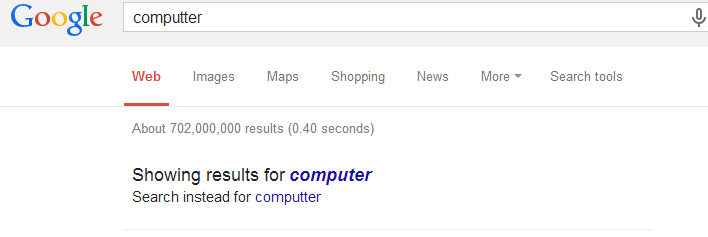I'm working on the search results for a large shopping site. Each day it gets thousands of queries and, as expected, often gets misspelled search terms. Each day reps go through the search results and add them to a data dictionary. So if someone searched for "computer" and instead typed "computter" then computter would direct the user to computer.
(These are not actual terms and the process is more complex than I described.)
My question is: how do we find out if the user truly was looking for "computter"? Maybe there is golf app that the store could sell that is called "ComPutter").
(Again I'm making these search terms up as I'm going along.)
That being the case how do ask the customer "did you mean what you wrote"?
Currently we display something along the line of:
You searched for "computter." No results were found for that. Did you mean "computer"?
I'm looking for examples or ideas that would allow the user to say: "Yes I meant computter - show me computter."
The "problem" with the Google example is that many people "miss" the "search instead" statement. You would think that people would be "trained" to look for this but in tests I've found too many people not find the "search instead" link.


You searched for "computter." No results were found for that. Did you mean "computer"?? You're giving the results for what the user searched for (something that should always be the case in my opinion) and it's giving an opportunity to correct something that is most likely a typo.